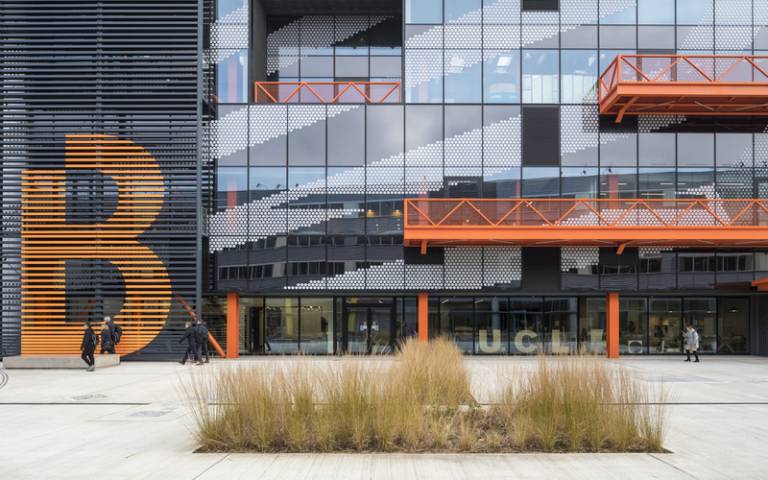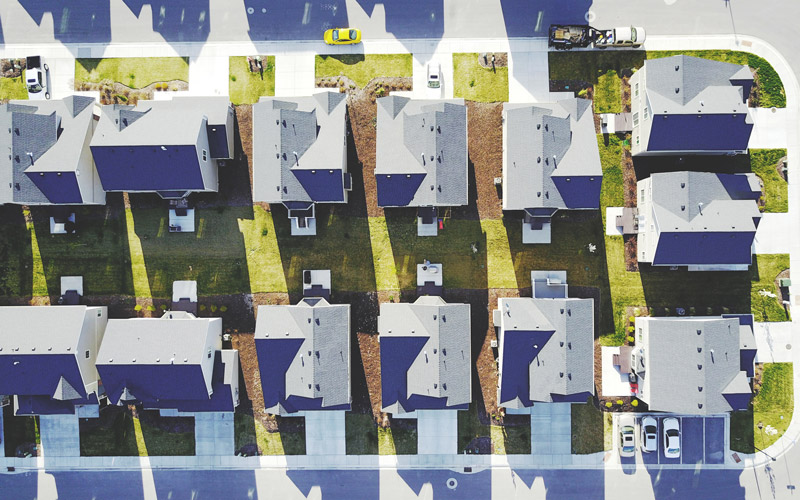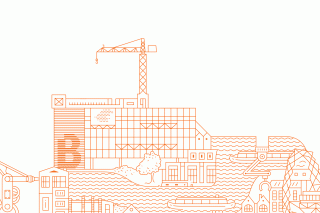Here at The Real Estate Institute we're determined to rethink real estate and the wider impact it plays globally, socially and economically.

Our mission at the Real Estate Institute is to:
- Challenge conventional orthodoxies affecting land and the built environment
- Understand and face the disruption, challenges and changes which will affect the real estate industry in the 21st century
- Communicate our findings widely.
Our definition of real estate is ‘Immovable Assets’. This includes anything that is built on or attached to land, ranging from physical infrastructure to air and mineral rights, agriculture, buildings and cities. Our aim is to understand all types of value, positive and negative, tangible and intangible that attaches to land.
What we do
Our Role is to build bridges between academia and industry and to work hand in hand with practitioners and communities in a global and holistic manner which breaks down traditional barriers between disciplines, sectors and localities to find sustainable solutions which work simultaneously from environmental, social and economic perspectives.
Learning and research at the Institute therefore necessarily covers a wide variety of subjects from a range of viewpoints. Each subject area overlaps and resonates with others and can only be fully understood in conjunction with others. There are no passengers at the BREI, everyone brings a valid and useful perspectives on the themes studied.

8 Themes
Our teaching, learning, research, collaboration and study broadly falls under one or more of eight theme areas. These themes are deliberately broad and inclusive and overlapping. They are derived from readings and conversations with and within the real estate industry over the last decade and are designed to encapsulate and approach the biggest questions and most prominent concerns of a wide range of agents. They are:
- Digital Disruption
New technologies have now disrupted, or are about to disrupt, just about every area of modern life and business. In real estate, there is a schism between those with the knowledge and power in property and those with the knowledge and power in new technologies.
Under the digital disruption theme, we bring together both digital natives and real estate experts to understand, use and create new technologies which will help build a new future. Rather than re-inventing 20th century property norms in a digital image, we provide the space to where the latest knowledge and expertise of digital experts from UCL, global academics and commercial institutions can be exchanged with building users, occupiers and real estate practitioners to create new paradigms and practices for the 21st century.
- Community Inclusion
Widespread resistance to changes and new developments in the built environment can be seen, at least in part, as a legacy of 20th century planning and development processes which impose solutions on people rather than include them as part of a solution. This resistance can threaten the delivery of new housing supply and business accommodation and can make it an expensive, difficult and lengthy process for all involved, often resulting in sub-optimal outcomes from a social and environmental point of view too.
Evidence suggests that outcomes can be improved by designing and making plans for new real estate with people rather ‘experts doing it to them’. But the real estate industry is geared toward a series of short-term top-down, siloed and specialist processes rather than long-term relationships and collaborations with people. This theme explores how industry, government and people can work together to ‘servant-plan’ rather than ‘masterplan’ new developments for the benefit of all parties.
- Health and Wellbeing
Disparities in life expectancy alone tell us that where you live has a pronounced effect on individual health outcomes. The built environment impacts how we live, how happy we are, how much exercise we get, how much pollution we are exposed to – the list goes on. Research in the field of health care facilities has shown that good design can promote health and well-being in hospitals and clinics, but it is just as valid in the wider built environment.
In addition, aging populations, pressures on healthcare and social services, not to mention global pandemics, put health and wellbeing front and centre of the real estate agenda, whether it be in workplaces, educational facilities, elder care facilities or other living environments. Concerns about the health and wellbeing effects of pollution, food health, hygiene and freshness also impact agriculture and the supply chain, overlapping with environmental concerns, so rural real estate and land hosting distribution and supply chain logistics is involved.
BREI courses and research will look at how good design and land stewardship can create healthy environments and healthy cities that enable and encourage well-being as well as environmental and economic resilience.
- Learning Environments
Education buildings, whether they are schools, colleges or universities, need to provide a positive environment for working and learning. But they also need to consider being more than just places of education; they can be community hubs offering learning and engagement outside the normal education day, and for all ages.
In a fast changing world, learning takes place in a much more extensive environment than traditional education facilities. Workplaces and communities, even homes, need to be able to host lifelong training and educational needs in a wide variety of facilities ranging from studies, through libraries and adaptable teaching rooms.
BREI research and courses will consider not only how education sector buildings can accommodate and adapt to new paradigms but also how offices, community spaces and other workplaces fit in.
- Housing Affordability
High rents and house prices, coupled with lack of social, affordable or even mid-priced housing, is a growing global problem that threatens communities, employers and the prosperity of cities all over the globe. Some of the most successful ad prosperous cities of the late 20th century are now seeing a flight of populations to alternative, smaller towns and cities where quality of living standards are high but where housing costs are cheaper. It is becoming increasingly difficult for cities with expensive housing to attract and retain, not only ‘key workers’ like nurses, doctors, firefighters and police officers but almost anyone in middle range incomes.
Our understanding of this issue needs to extend beyond the traditional measures of house prices in relation to gross wages. When thinking about affordability, we need to consider the upfront cost of buying or renting a home as well as the ongoing costs of rents and mortgages. We also need to better understand the long term costs of ownership and occupation like maintenance, upkeep, repair and service changes, for example. We also need to understand more about the social and economic costs of housing (like overcrowding, wellbeing or long commutes, for example).
BREI courses and research will look at the barriers to housing affordability and the possible solutions to provide homes appropriate for their occupiers.
- Beyond Placemaking
In an era when technology is changing the way we live, work and play, and where housing affordability is impacting the design and function of communities, how do we create new places and manage existing places to ensure true environmental, economic and social value? How do we provide a built environment that is more than just a collection of single-use buildings and bits of public art or patches of ‘green space’ and instead create the adaptable social infrastructure and facilities that meet long-term needs and demand for a mixture and variety of changing uses?
The BREI will work with others and learn from the experiments and experiences that may hold vital clues to solve these challenging and complex questions.
- Real Estate Resilience
The consequences of climate change are profound for all of us. Its impact threatens many countries and cities around the world and, for many more of us, it will challenge the way we live. How do we adapt and how do we make our urban areas more resilient to the potentially devastating changes in weather patterns, rising sea levels, biohazards, food supply and so on?
The BREI is working together a wide range of industry and academic experts from a variety of disciplines to develop the knowledge and actions necessary to answer the increasingly pressing questions of sustainability in all its forms.
- Infrastructure and interface
Real estate is more than just buildings; it encompasses the physical and economic landscapes created by other services, such as transport and utilities, as well as hosting some of the physical structures which fall under the heading ‘infrastructure.
The infrastructure interface covers the, increasingly large, ‘grey area’ where real assets stop and infrastructure services begin. It is concerned about the way that publically funded infrastructure projects can change and either diminish or enhance real estate asset value.
The BREI will also explore how the built environment sector could benefit from the experiences of the infrastructure sector in other circumstances, such as the way long-term finance mechanisms have been employed in infrastructure and might be applied to long-term regeneration and other complex developments, for example.
 Close
Close


